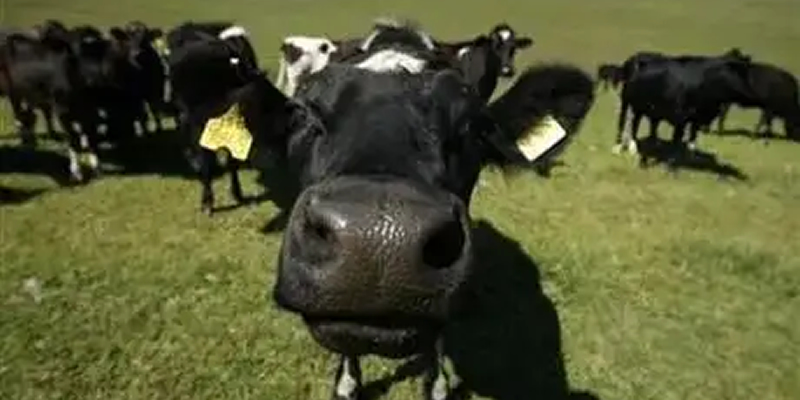December 5, 2022
New scheme rewards farmers in Brazil for joining carbon neutral beef programme

Details have been revealed during a recent webinar about a pilot scheme in place which sees Brazilian beef farmers rewarded with an 8% price bonus for joining a programme that claims to produce carbon neutral Brazilian beef.
The seminar was titled "AgriTalks Ireland: The Brazilian experience in reducing the carbon footprint in livestock farming" and took place on November 30.
The online event was hosted by Euractiv and organised by the Embassy of Brazil in Dublin, Ireland, as well as the Brazilian trade and investment promotion agency ApexBrasil.
The panellists were Dr. Paul Crosson, beef enterprise leader at Teagasc Agriculture and Food Development Authority; Prof. Tommy Boland, associate dean of research innovation and impact at the School of Agriculture and Food Science, University College Dublin; Dr. Mariana de Aragao Pereira, senior researcher at Embrapa – Brazilian Agricultural Research Corporation; Luiza Bruscato, executive manager at the Brazilian Roundtable on Sustainable Livestock (GTPS).
Dr. Crosson and Prof. Boland spoke in detail on the measures Ireland is taking to reduce the carbon footprint of its beef production system, while Dr. de Aragao Pereira and Bruscato outlined the measures being taken in Brazil.
The webinar heard how the Brazilian livestock sector is working to improve its sustainability.
Dr. de Aragao Pereira explained the details of the Carbon Neutral Beef (CNB) brand in Brazil and the method of production which gives the beef, explaining that the brand is "a seal which certifies beef produced using systems that neutralise methane gas emissions".
"We developed (CNB) in partnership with Marfrig, a major slaughterhouse in Brazil," she said. "The aim of this protocol is to neutralise the enteric methane emissions and add value to beef. The idea was to reduce the environmental impact of livestock by introducing trees in the systems in a way that the number of trees could offset the emissions by capturing the carbon in the trunks.
"By doing that, these trees would add to the system in environmental terms and add value to the whole production, increasing the profitability of the system."
The premium for farmers joining this protocol is 8% on top of the beef price.
The scheme is only available in regions of Brazil where there are already established beef farms. The trees used are Eucalyptus trees and the timber must be used for furniture or building, and cannot be burned.
Dr. de Aragao Pereira added that mechanisms such as this "could easily be implemented in other countries such as Ireland."
She went on to explain that the Brazilian beef sector "needs to reduce its average slaughter age" but said that it has been "reduced already."
She added that the average cattle slaughter age in Brazil used to be 48 months of age and has reduced to 30-36 months of age, while also stating that "we can to better". According to Dr. de Aragao Pereira, by doing this and a range of other measures, the Brazilian beef sector "is expecting to mitigate one billion tonnes of carbon dioxide equivalent throughout a 10-year period".
Dr. de Aragao Pereira explained that Brazilian beef production are primarily "pasture-based systems" and noted that Brazil has a "huge opportunity to finish cattle earlier" if the country's beef sector uses an "intensive fattening" period for the final finishing stage.
In April 2021, the Brazilian Ministry of Agriculture, Livestock and Supply (MAPA) created the ABC+ Plan for the adaptation of agriculture to low carbon emissions systems.
- Agriland










